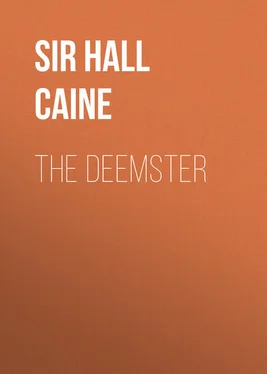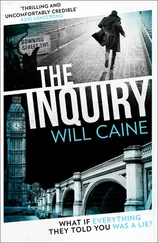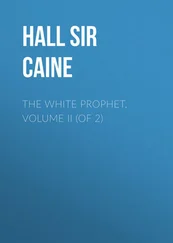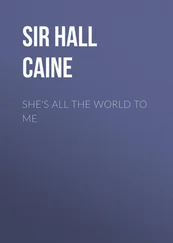Hall Caine - The Deemster
Здесь есть возможность читать онлайн «Hall Caine - The Deemster» — ознакомительный отрывок электронной книги совершенно бесплатно, а после прочтения отрывка купить полную версию. В некоторых случаях можно слушать аудио, скачать через торрент в формате fb2 и присутствует краткое содержание. ISBN: , Жанр: foreign_antique, foreign_prose, на английском языке. Описание произведения, (предисловие) а так же отзывы посетителей доступны на портале библиотеки ЛибКат.
- Название:The Deemster
- Автор:
- Жанр:
- Год:неизвестен
- ISBN:http://www.gutenberg.org/ebooks/35781
- Рейтинг книги:5 / 5. Голосов: 1
-
Избранное:Добавить в избранное
- Отзывы:
-
Ваша оценка:
- 100
- 1
- 2
- 3
- 4
- 5
The Deemster: краткое содержание, описание и аннотация
Предлагаем к чтению аннотацию, описание, краткое содержание или предисловие (зависит от того, что написал сам автор книги «The Deemster»). Если вы не нашли необходимую информацию о книге — напишите в комментариях, мы постараемся отыскать её.
The Deemster — читать онлайн ознакомительный отрывок
Ниже представлен текст книги, разбитый по страницам. Система сохранения места последней прочитанной страницы, позволяет с удобством читать онлайн бесплатно книгу «The Deemster», без необходимости каждый раз заново искать на чём Вы остановились. Поставьте закладку, и сможете в любой момент перейти на страницу, на которой закончили чтение.
Интервал:
Закладка:
"Sell, man – sell, sell," they cried.
"I can't sell. The cargo is not mine. I'm a poor man myself," said the master.
"Well, and what's that it's sayin', 'When one poor man helps another poor man God laughs.'"
The Bishop came to the ship's side, and tried to treat for the cargo.
"I've given bond to land it all at Whitehaven," said the master.
Then the people's faces grew black, and deep oaths rose to their lips, and they turned and looked into each other's eyes in their impotent rage. "The hunger is on us – we can't starve – let every herring hang by its own gill – let's board her," they muttered among themselves.
And the Bishop heard their threats. "My people," he said, "what will become of this poor island unless God averts his awful judgments, only God himself can know; but this good man has given his bond, and let us not bring on our heads God's further displeasure."
There was a murmur of discontent, and then one long sigh of patient endurance, and then the Bishop lifted his hands, and down on their knees on the quay the people with famished faces fell around the tall, drooping figure of the man of God, and from parched throats, and hearts wellnigh as dry, sent up a great cry to heaven to grant them succor lest they should die.
About a week afterward another ship put in by contrary winds at Castletown. It had a cargo of Welsh oats bound to Dumfries, on the order of the Provost. The contrary winds continued, and the corn began to heat and spoil. The hungry populace, enraged by famine, called on the master to sell. He was powerless. Then the Bishop walked over his "Pyrenees," and saw that the food for which his people hungered was perishing before their eyes. When the master said "No" to him, as to others, he remembered how in old time David, being an hungered, did that which was not lawful in eating of the showbread, and straightway he went up to Castle Rushen, got a company of musketeers, returned with them to the ship's side, boarded the ship, put the master and crew in irons, and took possession of the corn.
What wild joy among the people! What shouts were heard; what tears rolled down the stony cheeks of stern men!
"Patience!" cried the Bishop. "Bring the market weights and scales."
The scales and weights were brought down to the quay and every bushel of the cargo was exactly weighed, and paid for at the prime price according to the master's report. Then the master and crew were liberated, and the Bishop paid the ship's freight out of his own purse. When he passed through the market-place on his way back to the Bishop's Court the people followed with eyes that were almost too dim to see, and they blessed in cheers that were sobs.
And then God remembered his people, and their troubles passed away. With the opening spring the mackerel nets came back to the boats in shining silver masses, and peace and plenty came again to the hearth of the poorest.
The Manxman knew his Bishop now; he knew him for the strongest soul in the dark hour, the serenest saint in the hour of light and peace. That hoary old dog, Billy the Gawk, took his knife and scratched "B.M.," and the year of the Lord on the inside of his cupboard door to record the advent of Bishop Mylrea.
A mason from Ireland, a Catholic named Patrick Looney, was that day at work building the square tower of the church of the market-place, and when he saw the Bishop pass under him he went down on his knees on the scaffold and dropped his head for the good man's blessing.
A little girl of seven, with sunny eyes and yellow hair, stood by at that moment, and for love of the child's happy face the Bishop touched her head and said, "God bless you, my sweet child."
The little one lifted her innocent eyes to his eyes, and answered with a courtesy, "And God bless you, too, sir."
"Thank you, child, thank you," said the Bishop. "I do not doubt that your blessing will be as good as mine."
Such was Gilcrist Mylrea, Bishop of Man. He needed all his strength and all his tenderness for the trials that were to come.
CHAPTER VI
THE COZY NEST AT BISHOP'S COURT
The children of the Deemster and Bishop spent the first five years as one little brood in the cozy nest at Bishop's Court. The arrangement was agreeable to both brothers while it lasted. It left Ballamona a silent place, but the master recked little of that. The Deemster kept no company, or next to none. He dismissed all his domestics except one, and Hommy-beg, who had been gardener hitherto, became groom as well. The new Ballamona began to gather a musty odor, and the old Ballamona took the moss on its wall and the lichen on its roof. The Deemster rose early and went late to bed. Much of the day was spent in the saddle passing from town to town of his northern circuit, for he held a court twice weekly at Ramsey and Peeltown. Toward nightfall he was usually back at his house, sitting alone by the fireplace, whether, as in the long nights of winter, a peat fire burned there, or, as in the summer evenings, the hearth was empty. Hardly a sound broke the dead quiet of the solitary place, save when some litigious farmer who had caught his neighbor in the act of trespass brought him, there and then, for judgment, to the Deemster's house by that most summary kind of summons, the force of superior muscles. On such occasions the plaintiff and defendant, with their noisy witnesses, would troop into the hall with the yaps and snaps of a pack of dogs, and Thorkell would twist in his chair and fine one of them, or perhaps both, and pocket their money, and then drive them all away dissatisfied, to settle their dispute by other means in the darkness of the road outside.
Meantime, Bishop's Court was musical with children's voices, and with the patter of tiny feet that ferreted out every nook and cranny of the old place. There was Ewan, the Deemster's son, a slight, sensitive boy, who listened to you with his head aslant, and with absent looks. There was wee Mona, Ewan's meek sister, with the big eyes and the quiet ways, who liked to be fondled, and would cry sometimes when no one knew why. And then there was Daniel – Danny – Dan, the Bishop's boy, a braw little rogue, with a slice of the man in him, as broad as he was long, with tousled fair head and face usually smudged, laughing a good deal and not crying overmuch, loving a good tug or a delightful bit of a fight, and always feeling high disdain at being kissed. And the Bishop, God bless him! was father and mother both to the motherless brood, though Kerry Quayle was kept as nurse. He would tell a story, or perhaps sing one, while Mona sat on his knee with her pretty head resting on his breast, and Ewan held on to his chair with his shy head hanging on his own shoulder, and his eyes looking out at the window, listening intently in his queer little absent way. And when Dan, in lordly contempt of such doings, would break in on song or story, and tear his way up the back of the chair to the back of the Bishop, Mona would be set on her feet, and the biggest baby of the four there present would slide down on to his hands and knees and creep along the floor with the great little man astride him, and whinny like a horse, or perhaps bark like a dog, and pretend to leap the four-bar gate of the baby's chair tumbled down on its side. And when Dan would slide from his saddle, and the restless horseman would turn coachman and tug the mane of his steed, and all the Bishop's long hair would tumble over his face, what shrieks of laughter, what rolling on the ground and tossing up of bare legs! And then when supper-time came, and the porridge would be brought in, and little Mona would begin to whimper because she had to eat it, and Ewan to fret because it was barley porridge and not oaten cake, and Dan to devour his share with silent industry, and then bellow for more than was good for him, what schemes the good Bishop resorted to, what promises he made, what crafty tricks he learned, what an artful old pate his simple head suddenly became! And then, when Kerry came with the tub and the towels, and three little naked bodies had to be bathed, and the Bishop stole away to his unfinished sermon, and little Mona's wet hands clung to Kerry's dress, and Ewan, standing bolt-upright in the three inches of water, blubbered while he rubbed the sponge over an inch and a half of one cheek, and Dan sat on his haunches in the bottom of the tub splashing the water on every side, and shrieking at every splash; then the fearful commotion would bring the Bishop back from the dusky room upstairs, where the shaded lamp burned on a table that was littered with papers. And at last, when the day's big battle was done, and night's bigger battle began, and three night-dresses were popped over three wary heads that dodged them when they could, the Bishop would carry three sleepless, squealing piggies to bed – Mona at his breast because she was little, Ewan on his back because he was big, and Dan across his shoulders because he could not get to any loftier perch. Presently there would be three little pairs of knees by the crib-side, and then three little flaxen polls on the pillow, tumbling and tossing, and with the great dark head of the Bishop shaking gravely at them from over the counterpane, and then a hush broken by a question lisped drowsily, or a baby-rime that ran a line or two and stopped, and at length the long deep quiet and the silence of sleep, and the Bishop going off on tiptoe to the dusky room with the shaded lamp, and to-morrow's sermon lying half written beneath it.
Читать дальшеИнтервал:
Закладка:
Похожие книги на «The Deemster»
Представляем Вашему вниманию похожие книги на «The Deemster» списком для выбора. Мы отобрали схожую по названию и смыслу литературу в надежде предоставить читателям больше вариантов отыскать новые, интересные, ещё непрочитанные произведения.
Обсуждение, отзывы о книге «The Deemster» и просто собственные мнения читателей. Оставьте ваши комментарии, напишите, что Вы думаете о произведении, его смысле или главных героях. Укажите что конкретно понравилось, а что нет, и почему Вы так считаете.












